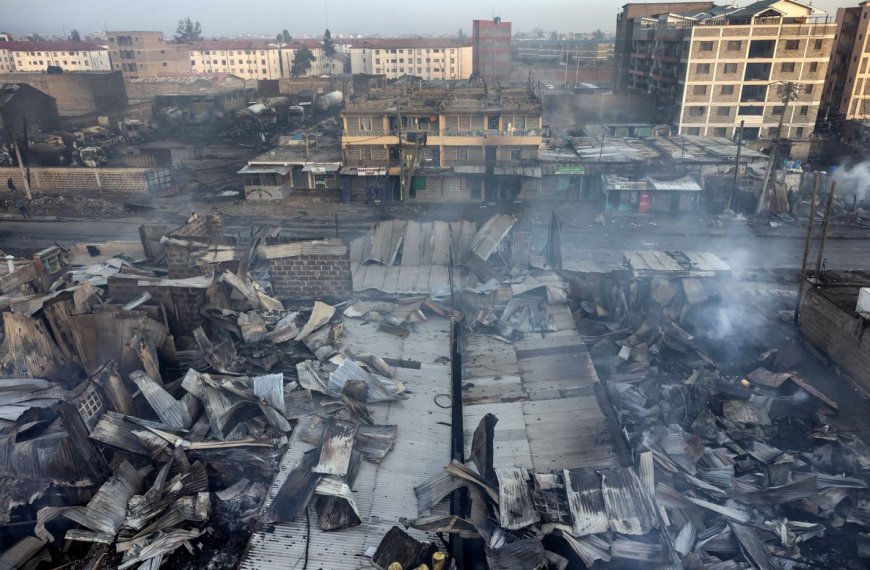Urgent Call to Enhance Emergency Response in Nairobi

By Euphemia Achieng, Rongo University
The recent fire outbreak in Embakasi, Nairobi, once again highlights the urgent need for a robust and efficient emergency response system in our city.
It is a stark reminder of the devastating consequences of inadequate emergency preparedness and response.
The fire, caused by a gas explosion, quickly spread, engulfing nearby homes and warehouses. The explosion occurred late at night, when many residents were likely at home.
The delayed arrival of emergency services worsened the situation. This tragic event is not an isolated incident but part of a recurring pattern of fire outbreaks in Nairobi.
The World Health Organization has established an Emergency Hub in Nairobi, an initiative that has been well received by the Kenyan government and partners.
However, the Embakasi fire incident indicates that there is still much work to be done. The hub's vision of supporting countries to respond to outbreaks and emergencies in real-time is yet to be fully realized in Nairobi.
The city's emergency response system needs strengthening in several key areas. First, there is a need for improved coordination among various emergency response agencies.
The Embakasi fire involved a multi-agency fire brigade, including Nairobi City County, the National Police, and the Kenya Red Cross. While this is a positive step, more needs to be done to ensure seamless coordination and communication among these agencies.
Investment in equipment and training is also needed. Nairobi's firefighters require modern firefighting equipment and regular training to handle different types of emergencies. The city should also have more strategically located fire stations to ensure quick response times.
Public education on fire safety needs to be intensified as well. Residents should be educated on how to respond during a fire outbreak to minimize casualties.
This includes understanding the importance of evacuation plans and knowing emergency contact numbers.
Lastly, strict enforcement of building codes and regulations is crucial. Many buildings in Nairobi do not meet the required safety standards, making them prone to fires. Regular inspections and penalties for non-compliance could significantly prevent fire outbreaks.
The Embakasi fire should serve as a wake-up call for all stakeholders. It is time for concerted action to improve Nairobi's emergency response system.
We owe it to the victims of the Embakasi fire and to all Nairobi residents to ensure that such a tragedy does not happen again.







